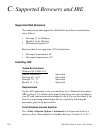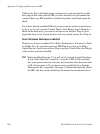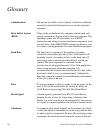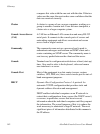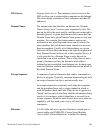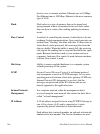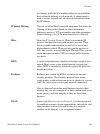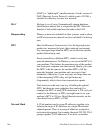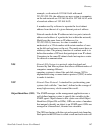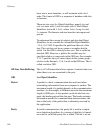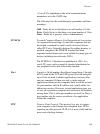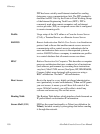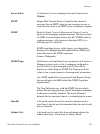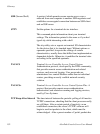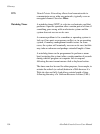Glossary
148 AlterPath Console Server User Manual
have one or more branches, or will terminate with a leaf
node. The format of OID is a sequence of numbers with dots
in between.
There are two roots for Object Identifiers, namely iso and
ccit. iso starts with .1 and ccit starts with .0. Most Object
Identifiers start with .1.3.6.1, where 1=iso, 3=org, 6= dod,
1 = internet. The Internet sub-tree branches into mgmt and
private.
To understand the concept of relative and absolute Object
Identifiers, let us consider the AdventNet Object Identifier
.1.3.6.1.4.1.2162. It specifies the path from the root of the
tree. The root does not have a name or a number but the
initial 1 in this OID is directly below root. This is called an
absolute OID. However, a path to the variable may be
specified relative to some node in the OID tree. For example,
2.1.1.7 specifies the sysContact object in the system group,
relative to the Internet (.1.3.6.1) node in the OID tree. This is
called a relative OID.
Off-Line Data Buffering This is a CAS feature that allows capture of console data even
when there is no one connected to the port.
OID See Object Identifier.
Packet A packet is a basic communication data unit used when
transmitting information from one computer to another. The
maximum length of a packet depends on the communication
medium. As an example, in Ethernet networks the maximum
length is1500 bytes. A data packet can be divided into two
parts: the header part and the data part. The header contains
information needed for communication between nodes; the
data is the body of the packet that is ultimately received by
the application.
Parity In serial communications, the parity bit is used in a simple
error detection algorithm. As a stream of data bits is formed,
an extra bit, called the parity bit, is added. This bit is set on



